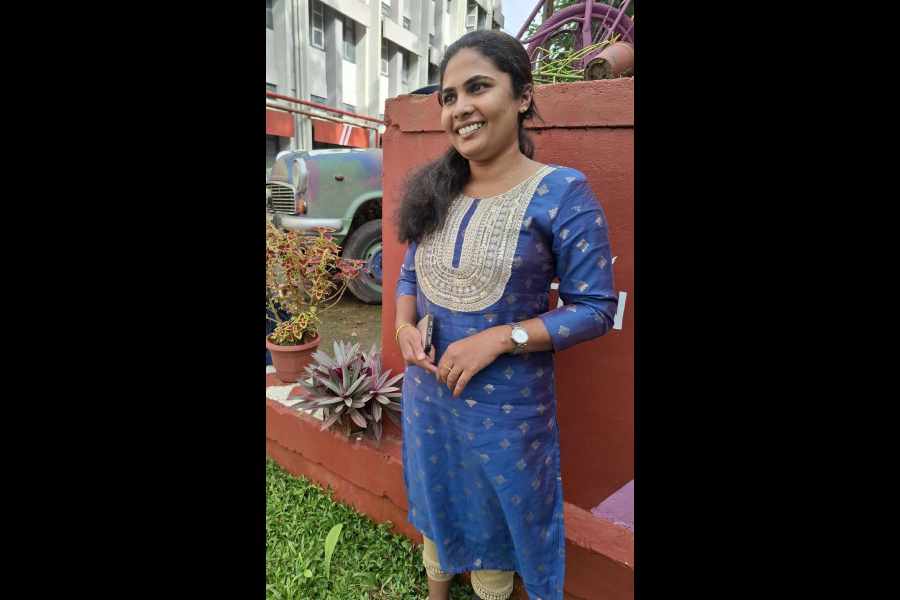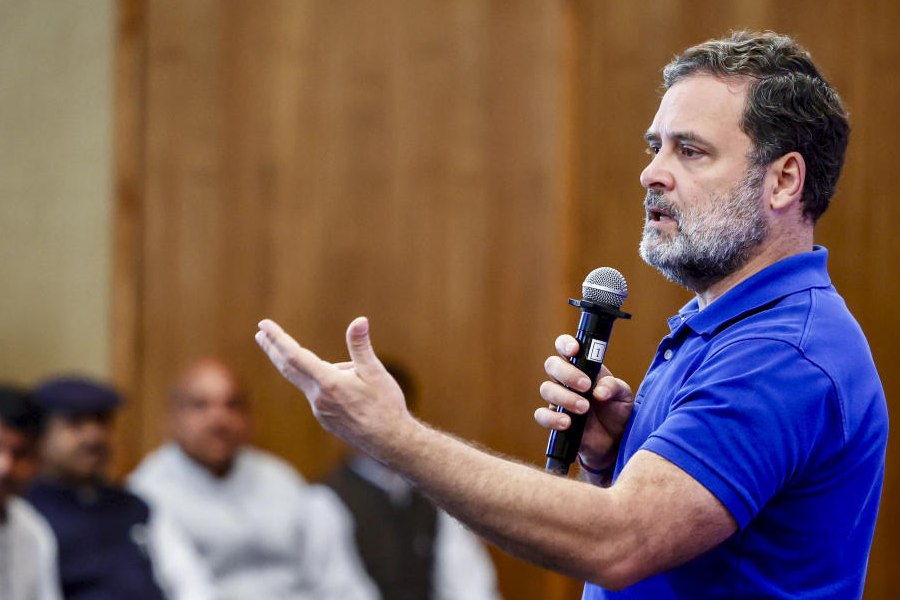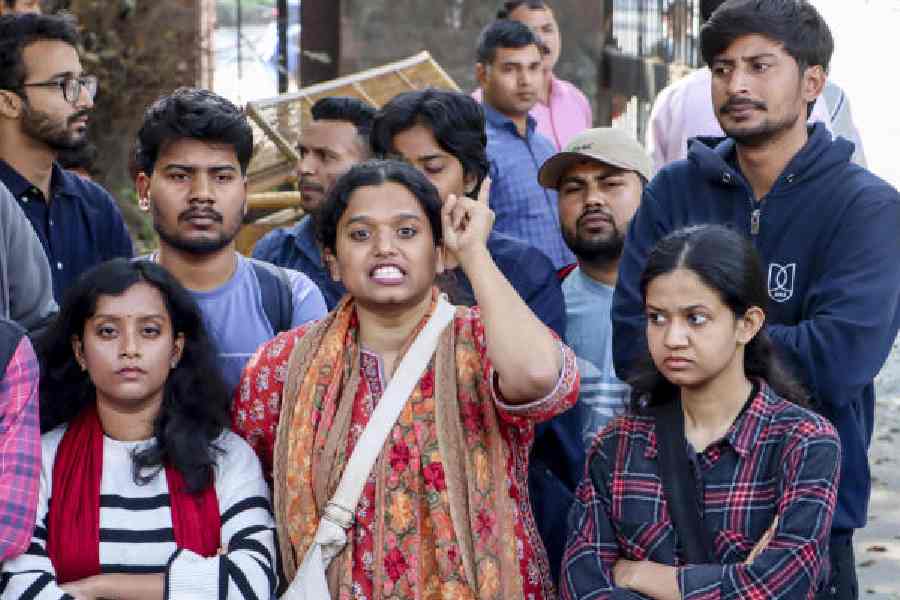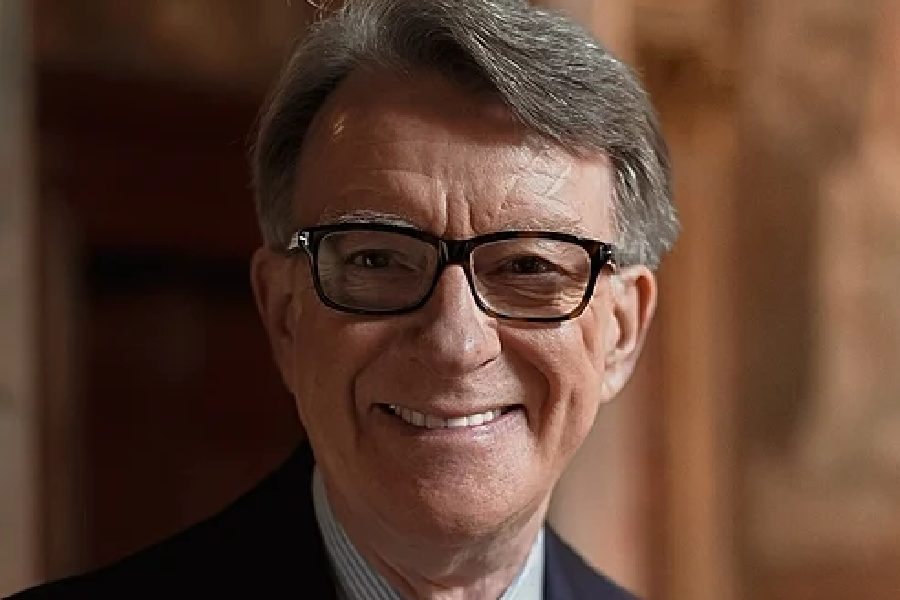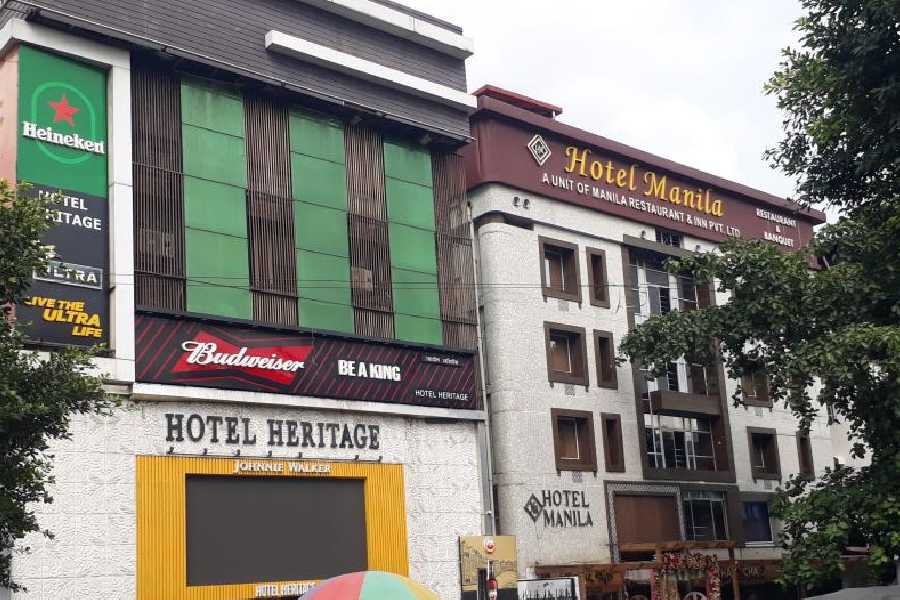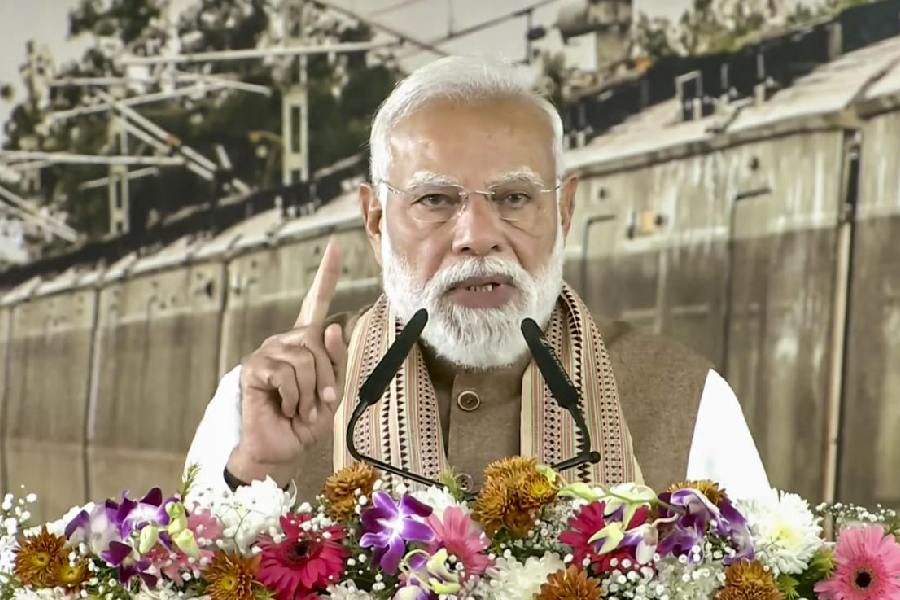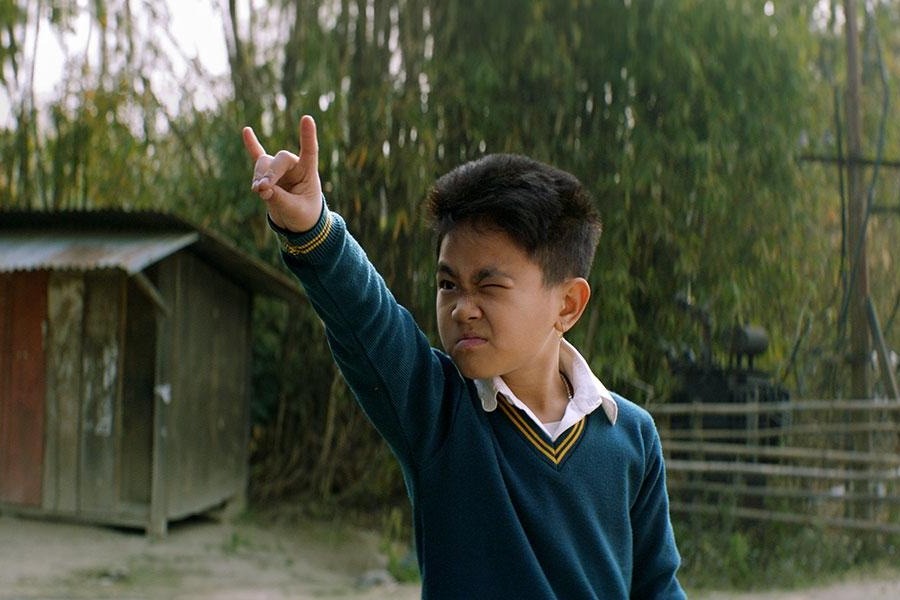When relatives of the Wayanad landslide victims prayed at the Puthumala public graveyard to commemorate the tragedy’s first anniversary on July 30, S. Sruthi, who lost nine family members to the calamity, stayed away from the memorial event.
The 25-year-old had offered her prayers in advance at the Thirunelli Sree Maha Vishnu Temple on July 24, coinciding with the Bali Tharpanam day, away from the intrusive eyes of the public and the media.
In an interview with The Telegraph, Sruthi said the cemetery represented a dual trauma for her: it brought back memories too painful.
She had last gone there a month after the landslides, her fiancé P.J. Jenson by her side, for the last rites of her mother Sabitha, whose boulder-ravaged body parts had been identified through a DNA test.
On the way back, Jenson — who she had clung to after losing her family — suffered grievous head injuries when the van the couple were travelling in collided with a bus. He died a few days later. Sruthi was left with severe leg injuries.
She, however, went on to become one of the inspiring media stories to emerge from the disaster when, on a December morning, she shrugged off her misfortunes and reported for duty as a clerk with the public grievances cell at the Wayanad collectorate. The job had been provided on compassionate grounds.
So, when scores of relatives of the Chooralmala and Mundakkai victims paid their respects to their loved ones on July 30 at Hrudayabhoomi (Heartland), the public graveyard at Puthumala, many reporters had scoured the gathering to find Sruthi. They were disappointed.
Sruthi told this newspaper she was in no frame of mind to return to Puthumala now.
When the landslides hit Sruthi’s village of Chooralmala and neighbouring Mundakkai, killing 298 people, she was away in Kozhikode, where she worked as an accountant at a leading private hospital.
Nature’s fury took away her parents Sabitha and Shivanna, younger sister Shreya and six other relatives. Then the accident snatched away Jenson.
“My extended family and friends were apprehensive, wondering how I would cope with the double tragedy. It was my decision not to have counselling sessions,” she said.
“I wanted to live. If I’d committed something bad, it would only have brought a bad name to my family and Jenson. I wanted to
live and face the world bravely.”
Sruthi has undergone two leg surgeries, and needs one more to her ankle. A private company has promised her a three-bedroom house, whose construction is halfway through.
“I now stay with my paternal and maternal grandmothers, and the children of my late father’s elder and younger brothers who are older than me. It’s their support that has enabled me to move on,” she said.
When relatives of the Wayanad landslide victims prayed at the Puthumala public graveyard to commemorate the tragedy’s first anniversary on July 30, S. Sruthi, who lost nine family members to the calamity, stayed away from the memorial event.
The 25-year-old had offered her prayers in advance at the Thirunelli Sree Maha Vishnu Temple on July 24, coinciding with the Bali Tharpanam day, away from the intrusive eyes of the public and the media.
In an interview with The Telegraph, Sruthi said the cemetery represented a dual trauma for her: it brought back memories too painful.
She had last gone there a month after the landslides, her fiancé P.J. Jenson by her side, for the last rites of her mother Sabitha, whose boulder-ravaged body parts had been identified through a DNA test.
On the way back, Jenson — who she had clung to after losing her family — suffered grievous head injuries when the van the couple were travelling in collided with a bus. He died a few days later. Sruthi was left with severe leg injuries.
She, however, went on to become one of the inspiring media stories to emerge from the disaster when, on a December morning, she shrugged off her misfortunes and reported for duty as a clerk with the public grievances cell at the Wayanad collectorate. The job had been provided on compassionate grounds.
So, when scores of relatives of the Chooralmala and Mundakkai victims paid their respects to their loved ones on July 30 at Hrudayabhoomi (Heartland), the public graveyard at Puthumala, many reporters had scoured the gathering to find Sruthi. They were disappointed.
Sruthi told this newspaper she was in no frame of mind to return to Puthumala now.
When the landslides hit Sruthi’s village of Chooralmala and neighbouring Mundakkai, killing 298 people, she was away in Kozhikode, where she worked as an accountant at a leading private hospital.
Nature’s fury took away her parents, Sabitha and Shivanna, younger sister Shreya and six other relatives. Then the accident snatched away Jenson.
“My extended family and friends were apprehensive, wondering how I would cope with the double tragedy. It was my decision not to have counselling sessions,” she said.
“I wanted to live. If I’d committed something bad, it would only have brought a bad name to my family and Jenson. I wanted to live and face the world bravely.”
Sruthi has undergone two leg surgeries and needs one more to her ankle. A private company has promised her a three-bedroom house, whose construction is halfway through.
“I now stay with my paternal and maternal grandmothers, and the children of my late father’s elder and younger brothers who are older than me. It’s their support that has enabled me to move on,” she said.
“Over the past one year, I have realised that I have grown bolder and become a professional in addressing the concerns of other people,” Sruthi said.
In her new job, Sruthi liaises with people who come to meet collector D.R. Meghashree five days a week, excluding Saturdays and Sundays.
She has been assigned to meet people from the Sulthan Bathery taluk. Walking is still painful for her, but an undeterred Sruthi can be seen moving around among 40 to 50 people, trying to address their grievances.
Her co-workers seem to care for her, too. While Sruthi was talking to this newspaper at the district collectorate during her lunch break, one of her 20-odd colleagues called her to find out where she was and if she was all right.
Sruthi, however, finds it difficult to stay at home on Sundays, the empty hours making her sense of loss more acute. So, she and her cousins visit various religious institutions,sometimes travelling to neighbouring Kozhikode district where they have friends.
Sruthi has got a new companion in the form of a three-month-old Shih Tzu pup, Milo. She had been a tad worried over the last few days when Milo fell ill; he is now recuperating.
When people ask her about her future plans, she knows the inevitable query would come up: “When are you getting married?”
Without batting an eyelid, she tells them: “First, let me get back to normal health and move into my new home. Then my grandmothers and cousins will look for a groom.”

